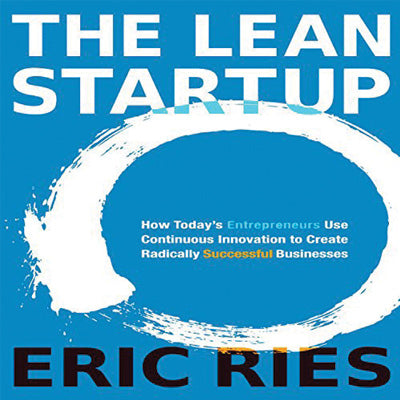
The Lean Startup: How Today's Entrepreneurs Use Continuous Innovation to Create Radically Successful
The Lean Startup: A Guide to Entrepreneurial Success
Are you a small business owner looking to take your company to the next level? "The Lean Startup" by Eric Ries provides a framework for developing and launching successful startups. The book has become a must-read for entrepreneurs and has been praised for its practical approach to innovation and risk management.
Key Takeaways from The Lean Startup
- Startups are not smaller versions of large companies, but rather require a different way of thinking and working.
- The Lean Startup methodology focuses on continuous innovation and rapid experimentation to validate ideas and create a successful business.
- The Build-Measure-Learn feedback loop is the cornerstone of the Lean Startup approach, allowing startups to iterate quickly and adjust their strategy as needed.
Ries argues that traditional business planning and forecasting methods are not effective for startups because they are based on assumptions that may not be accurate. Instead, the Lean Startup methodology emphasizes the importance of validating these assumptions through rapid experimentation and learning from customer feedback. This approach helps to minimize waste and reduce risk by allowing startups to pivot their strategy if necessary.
The Lean Startup Methodology
The Lean Startup methodology consists of three key steps: Build, Measure, and Learn.
- Build: Start by creating a minimum viable product (MVP) to test your assumptions about the market and customer needs. The MVP should be just enough to demonstrate the value of your product or service and gather feedback from potential customers.
- Measure: Collect data on how customers interact with your MVP to determine if your assumptions are correct. This can be done through surveys, customer interviews, or usage data.
- Learn: Use the data you've collected to inform your next steps. If your assumptions were proven correct, continue to build and refine your product. If not, pivot your strategy and start the Build-Measure-Learn cycle again.
By continuously iterating through this cycle, startups can quickly validate their ideas and adjust their strategy as needed. This approach helps to minimize waste and reduce risk, as startups can pivot their strategy if necessary based on real data and customer feedback.
Why Read The Lean Startup
The Lean Startup is a must-read for any small business owner looking to take their company to the next level. The book provides a practical and actionable framework for developing and launching successful startups. Whether you're just starting out or looking to grow your existing business, "The Lean Startup" will provide you with the tools and knowledge you need to succeed.
So why wait? If you're looking to take your business to the next level, order your copy of "The Lean Startup" today!
